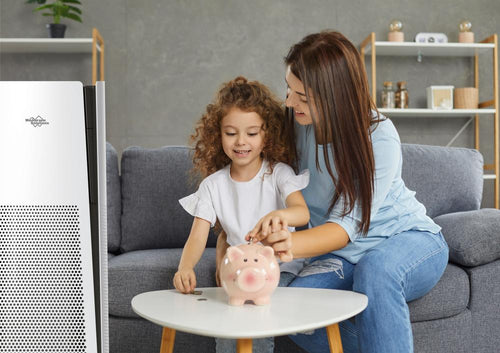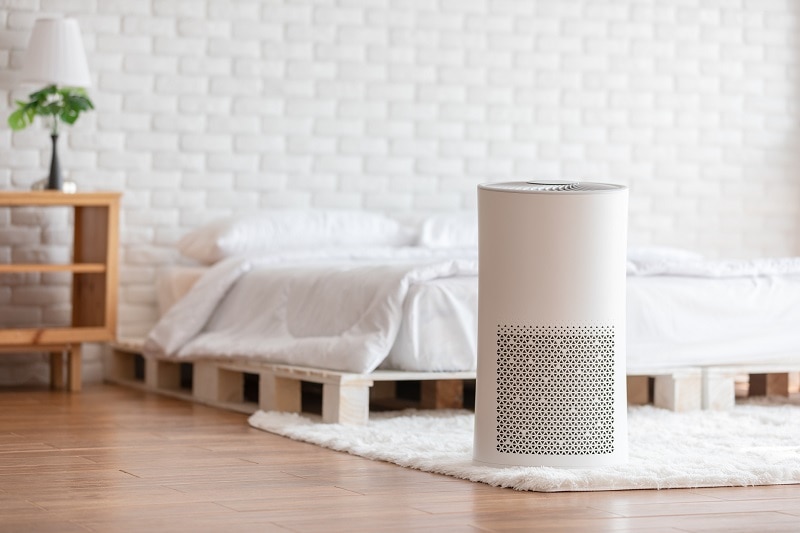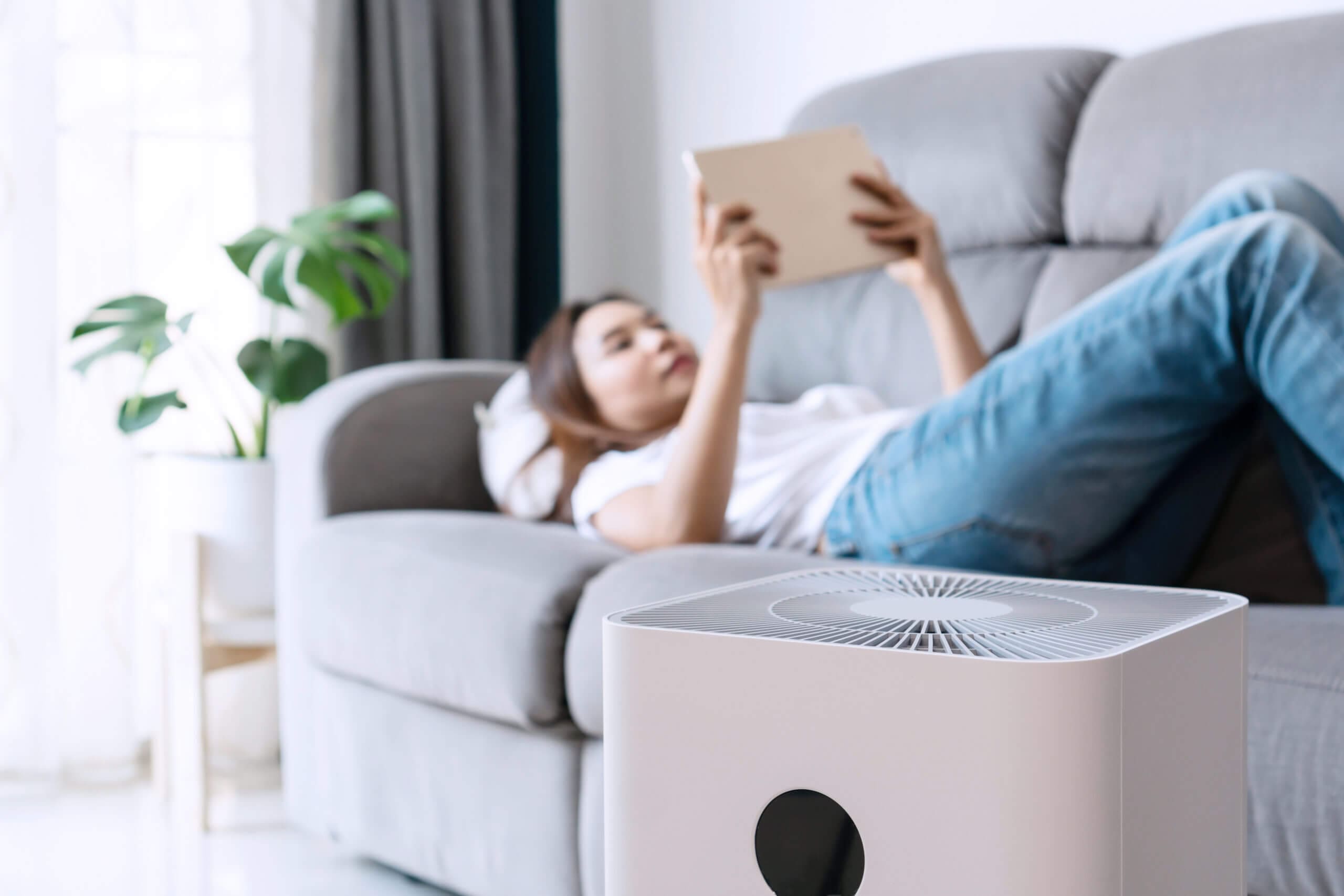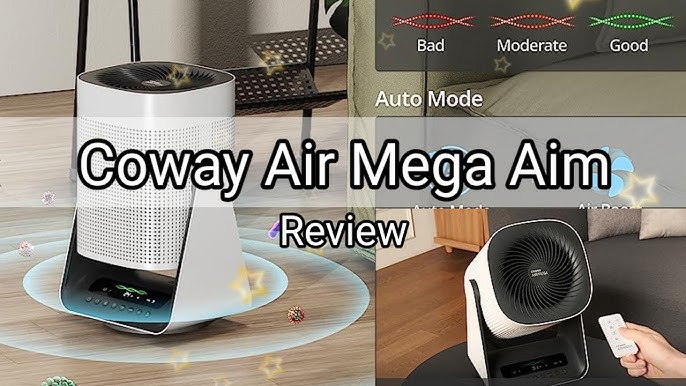Air purifiers are not a waste of money. They effectively remove pollutants, improving indoor air quality and promoting better health.
Air quality significantly impacts health and well-being. Indoor air often contains pollutants like dust, pollen, pet dander, and smoke. These contaminants can aggravate allergies and respiratory issues. Air purifiers are designed to filter out these harmful particles, providing cleaner air.
Modern air purifiers use HEPA filters, which capture 99. 97% of particles as small as 0. 3 microns. This technology ensures that the air you breathe indoors is much cleaner. Investing in a quality air purifier can lead to fewer health issues and a more comfortable living environment. They are especially beneficial for individuals with allergies, asthma, or other respiratory conditions.

Credit: www.mspurelife.com
Introduction To Air Purifiers
Air purifiers are devices that clean the air in your home. They remove harmful particles like dust, smoke, and pollen. These devices have gained a lot of attention recently. Many people wonder if they are worth the money. Let’s explore their rise in popularity and how they work.
Rise In Popularity
Air purifiers have become very popular. This is due to increasing concerns about air quality. Many cities have high levels of pollution. People want to breathe cleaner air at home. Some of the reasons for their popularity include:
- Concerns about indoor air pollution
- Increased awareness of allergies
- Health benefits like improved sleep
- Technological advancements in air purification
Purpose And Functionality
The main purpose of an air purifier is to clean the air. It removes contaminants like dust, pollen, and pet dander. Some models even remove smoke and odors. Here is a table showing different types of air purifiers and their functions:
| Type of Air Purifier | Function |
|---|---|
| HEPA Filter | Removes dust, pollen, and pet dander |
| Activated Carbon | Removes odors and gases |
| UV Light | Kills bacteria and viruses |
These devices use different technologies to purify the air. HEPA filters trap small particles. Activated carbon filters absorb gases and odors. UV light kills germs and bacteria. Each type has its own advantages and disadvantages.
Choosing the right air purifier depends on your needs. Think about what you want to remove from the air. Some purifiers are better for allergies. Others are better for smoke or odors. Understanding their functionality helps you make a better choice.
How Air Purifiers Work
Air purifiers are devices designed to clean the air. They remove pollutants and allergens. Knowing how they work can help you decide if they are worth it. Let’s dive into the basic mechanisms and the types of filters they use.
Basic Mechanism
Air purifiers pull in dirty air. They use a fan for this. The air passes through filters. These filters trap harmful particles. Clean air is then released back into the room.
Some air purifiers use ionization to clean the air. This method charges particles. The charged particles stick to surfaces. This keeps them out of the air you breathe.
Types Of Filters
There are different types of filters used in air purifiers. Each type targets specific pollutants. Knowing these can help you choose the right air purifier.
| Filter Type | Targets |
|---|---|
| HEPA Filter | Dust, pollen, pet dander |
| Activated Carbon Filter | Odors, gases, VOCs |
| UV-C Light | Bacteria, viruses |
| Ionic Filter | Smoke, fine particles |
HEPA filters are the most common. They can trap particles as small as 0.3 microns. This makes them very effective.
Activated carbon filters are great for removing odors. They can also remove harmful gases and chemicals.
UV-C light filters kill bacteria and viruses. They use ultraviolet light for this. These are often used in hospitals.
Ionic filters release charged ions. These ions attach to particles. The particles then fall out of the air.
Benefits Of Air Purifiers
Air purifiers have gained popularity in recent years. Many wonder if they are worth the investment. This section will delve into the benefits of air purifiers. We will highlight the major advantages and why they might be essential for your home.
Health Advantages
Using an air purifier can significantly improve your health. They remove harmful particles from the air. These particles include dust, pollen, and pet dander.
Air purifiers can also reduce allergens. This is particularly helpful for those with allergies. Clean air means fewer allergy symptoms and better breathing.
Another health benefit is the reduction of asthma triggers. Polluted air can worsen asthma. Purifiers help to keep the air clean and reduce these triggers.
Improving Air Quality
Air quality inside homes can often be worse than outdoors. Air purifiers help to improve indoor air quality significantly.
They remove volatile organic compounds (VOCs). These compounds come from household products and can be harmful.
Odor removal is another benefit. Air purifiers can eliminate cooking smells, smoke, and pet odors. This makes your home smell fresh and clean.
| Benefit | Description |
|---|---|
| Health Advantages | Reduces allergens, asthma triggers, and harmful particles. |
| Improving Air Quality | Removes VOCs and odors, improves overall air quality. |

Credit: www.vitacost.com
Common Myths
Many people believe air purifiers are a waste of money. These myths can mislead potential buyers. Understanding the truth can help you make better decisions.
Misconceptions
Several misconceptions exist about air purifiers. They often stem from a lack of information or misleading advertising. Here are some common myths:
- Myth 1: Air purifiers are only for people with allergies.
- Myth 2: All air purifiers are the same.
- Myth 3: Air purifiers eliminate all pollutants.
Debunking False Claims
Let’s break down these myths to find the truth. Understanding how air purifiers work can be very helpful.
| Myth | Truth |
|---|---|
| Air purifiers are only for people with allergies. | Everyone can benefit from cleaner air. |
| All air purifiers are the same. | Different models remove different pollutants. |
| Air purifiers eliminate all pollutants. | They reduce, not eliminate, pollutants. |
Some air purifiers can remove dust and pet dander. Others may target smoke and chemical vapors. Always check the specifications before buying.
Many believe air purifiers can remove every pollutant. In reality, they reduce the levels of pollutants. For best results, choose an air purifier with a HEPA filter.
Evaluating Cost Efficiency
Evaluating the cost efficiency of air purifiers is essential before purchasing. Many factors influence whether an air purifier is worth the money. This section breaks down the initial investment and long-term expenses to help you decide.
Initial Investment
The initial cost of an air purifier varies by brand and model. You can find budget models starting at $50. High-end models can go up to $1,000. The price often reflects the purifier’s features and capabilities.
- Budget Models: $50-$200
- Mid-Range Models: $200-$500
- High-End Models: $500-$1,000+
Budget models often have basic features. Mid-range models offer better performance and more features. High-end models come with advanced technology and higher filtration efficiency.
Long-term Expenses
Long-term expenses include filter replacements, energy consumption, and maintenance. It’s crucial to consider these costs for overall cost efficiency.
| Expense Type | Estimated Annual Cost |
|---|---|
| Filter Replacements | $30 – $200 |
| Energy Consumption | $10 – $50 |
| Maintenance | $20 – $100 |
Filter replacements are necessary to maintain air purifier efficiency. Energy consumption depends on the model and usage. Maintenance includes cleaning and occasional repairs.
By evaluating these costs, you can determine if an air purifier is a good investment. The goal is to find a balance between initial cost and long-term expenses.
Real-world Effectiveness
Are air purifiers truly effective in the real world? Let’s dive into the evidence. We will explore what science says and what users experience. This will help you decide if air purifiers are worth the investment.
Scientific Studies
Scientific studies provide valuable insights into the effectiveness of air purifiers. Researchers have conducted numerous studies to test these devices.
| Study | Findings |
|---|---|
| Harvard Study | Reduced indoor pollutants by 50% |
| Johns Hopkins Study | Improved respiratory health in children |
| EPA Report | Effective in reducing allergens |
These studies indicate that air purifiers can significantly reduce indoor pollutants. This leads to better health outcomes. Yet, effectiveness varies with device quality and room size.
User Experiences
Real-world user experiences offer another perspective on air purifier effectiveness. Many users share their stories online.
- Jane: “My allergies improved after using an air purifier.”
- Mark: “I noticed less dust in my home.”
- Samantha: “My kids seem to breathe easier now.”
These testimonials are common. Many people report positive changes in their indoor environment. Yet, not everyone has the same experience.
Some users find minimal improvement. This often depends on the specific model and usage. High-quality purifiers tend to deliver better results.
Alternatives To Air Purifiers
Not everyone wants to buy an air purifier. Luckily, there are several alternatives. These options can help you keep your indoor air clean. Let’s explore some natural methods and technological solutions.
Natural Methods
There are many natural ways to improve air quality at home. These methods are cost-effective and eco-friendly.
- Houseplants: Certain plants can filter toxins from the air. Examples include spider plants and peace lilies.
- Ventilation: Open windows to let fresh air in. Use exhaust fans in kitchens and bathrooms.
- Essential Oils: Oils like eucalyptus and tea tree have antimicrobial properties. They can purify the air naturally.
- Salt Lamps: Himalayan salt lamps can reduce airborne pollutants.
Technological Solutions
If you prefer tech-based solutions, there are several gadgets that can help. These devices are often easy to use and effective.
- Dehumidifiers: These devices reduce moisture, which can prevent mold growth.
- Exhaust Fans: Install these in areas like kitchens and bathrooms. They help remove pollutants and odors.
- Air Conditioners: Some AC units come with built-in air filters. These filters can trap dust and allergens.
- Smart Thermostats: These can monitor air quality and adjust settings automatically.
Both natural methods and technological solutions offer viable alternatives to air purifiers. Choose the one that best fits your needs and lifestyle.
Making An Informed Decision
Buying an air purifier is a big decision. You need to know if it is worth the money. This section will help you make the right choice. We will look at your needs and how to pick the best model.
Assessing Needs
First, think about why you need an air purifier. Do you have allergies or asthma? Do you live in a place with bad air quality? An air purifier can help with these problems. But you need to know what you need it for.
Make a list of your needs:
- Do you want to remove dust, pollen, or pet dander?
- Are you worried about smoke or odors?
- Do you need it for a small room or a large area?
Knowing your needs will help you choose the right air purifier.
Choosing The Right Model
Now that you know your needs, it is time to choose a model. There are many types of air purifiers. Some use filters, while others use UV light. Some are good for large rooms, and others are for small spaces. Here is a table to help you understand the options:
| Type | Best For | Cons |
|---|---|---|
| HEPA Filter | Removing dust and pollen | Needs regular filter changes |
| Activated Carbon | Eliminating odors and gases | May not remove particles |
| UV Light | Killing bacteria and viruses | Not effective for particles |
| Ionizers | Reducing small particles | Can produce ozone |
Choose a model based on what you need. Look at the pros and cons. Make sure it fits your budget and space.
To sum up, making an informed decision involves knowing your needs and picking the right model. This way, you can ensure that an air purifier is a good investment for you.

Credit: iaq.works
Frequently Asked Questions
Do Air Purifiers Really Work?
Yes, air purifiers effectively remove pollutants from indoor air. They capture allergens, dust, and smoke, improving air quality.
Are Air Purifiers Worth The Investment?
For people with allergies or asthma, air purifiers are beneficial. They reduce airborne irritants, providing relief and improving overall health.
How Often Should I Use An Air Purifier?
It’s best to run air purifiers continuously for optimal results. Consistent use ensures the air remains clean and free from pollutants.
Can Air Purifiers Remove Viruses?
Some air purifiers can capture viruses with HEPA filters. However, they should not replace other hygiene practices like hand washing.
Conclusion
Air purifiers can be a valuable investment for cleaner air at home. They help reduce allergens, dust, and pollutants. Consider your specific needs and budget before purchasing. Many find them beneficial for better health and comfort. Make an informed decision to enhance your indoor air quality effectively.

